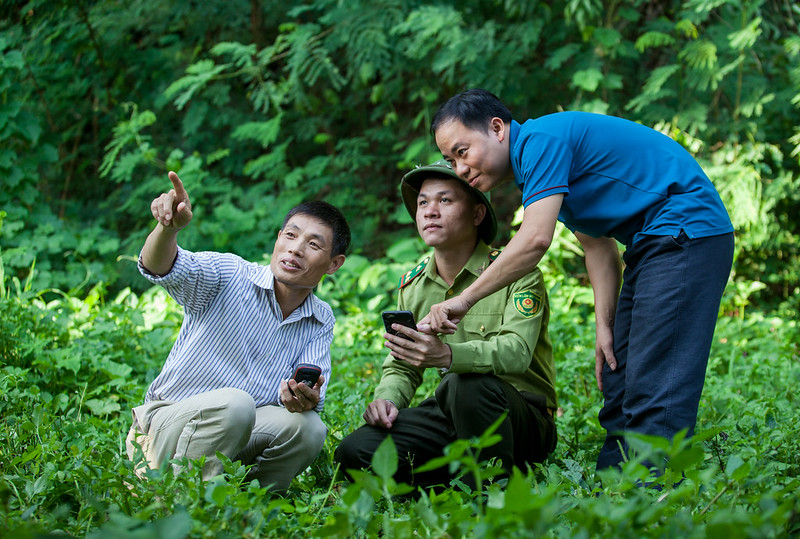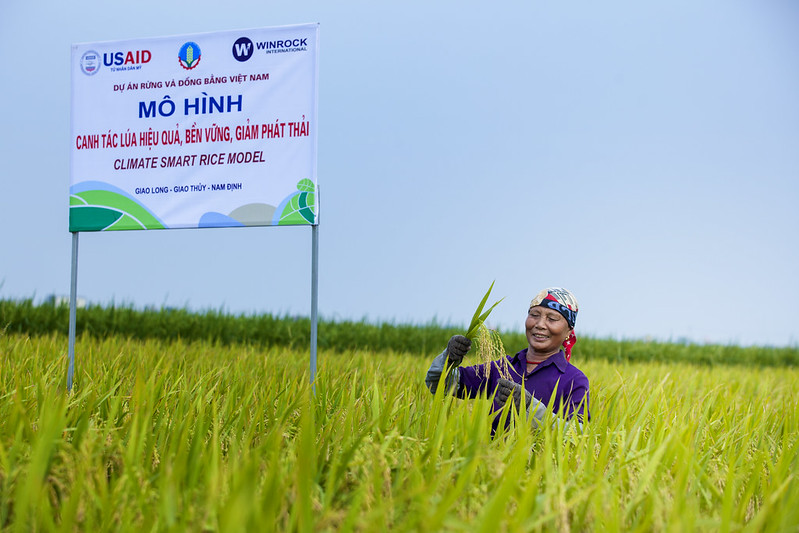USAID-supported forest service project generates US$120M for Vietnam annually
The eight-year project increases transparency, efficiency and effectiveness in payment for forest environmental services.
A forest service project, funded by the US Agency for International Development (USAID) in 2012-2021, enables Vietnam to generate roughly US$120 million per year.
| Activities of the Trachoma impact in Hoa Binh province. Photos: USAID |
The USAID Vietnam Forests and Deltas project on climate change program that costs US$31.4 million and implemented by Winrock International helps Vietnam’s transition to climate resilient and low-emission sustainable development, according to the US Embassy in Hanoi.
The news was released on April 22 to mark the completion of the project and launch the new USAID Sustainable Forest Management project and USAID Biodiversity Conservation project with the attendance of Deputy Minister of Agriculture and Rural Development (MARD) Ha Cong Tuan and USAID Acting Mission Director Bradley Bessire.
The project supported MARD to successfully implement the Payment for Forest Environmental Services (PFES) system at the national scale.
The project supported the Ministry of Agriculture and Rural Development (MARD) to successfully implement the Payment for Forest Environmental Services (PFES) system at the national scale.
| A field in the USAID Vietnam Forests and Deltas project. |
The annual earnings of approximately US$120 million help finance the management of roughly six million hectares of Vietnam’s forests.
The PFES system contributes to increasing incomes and living standards for hundreds of thousands of people living in the mountainous areas who receive payments to protect forests.
| People in rural areas are benificiaries of the project. |
The project also helps MARD expand the PFES system to increase its transparency, efficiency and effectiveness through application of electronic payments in disbursing funds and enhancement of monitoring and evaluation.
In addition, the project trained about 350,000 people on climate change adaptation, forest management and livelihoods development and helped over 200,000 people implement climate change risk reduction practices in the Mekong and Red River Deltas.
Over more than eight years of implementation at the national level and in the provinces of Quang Ninh, Nam Dinh, Son La, Thanh Hoa, Nghe An, Lam Dong and Long An, the project achieved significant results, receiving wide recognition from the government of Vietnam, local communities, and other related stakeholders.














